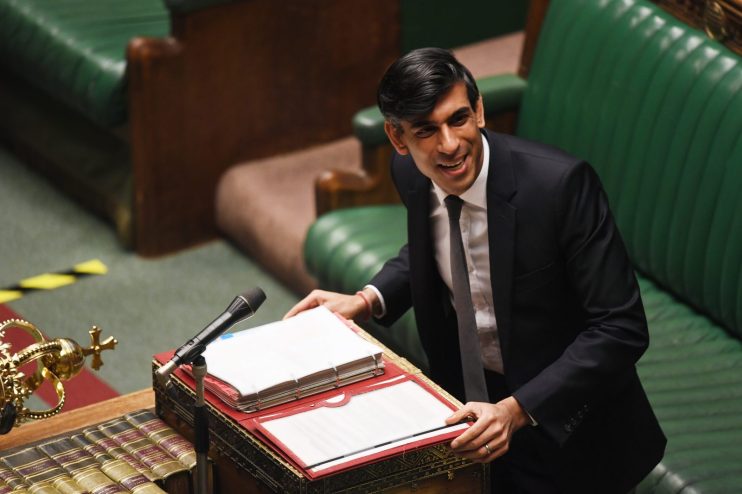Rishi Sunak warns UK economy will ‘get worse before it gets better’

The UK’s economy is set to “get worse before it gets better”, Rishi Sunak has today warned.
The chancellor told MPs this afternoon that the country’s latest lockdown has scuppered any economic recovery from last year and that the new restrictions will “have a significant impact on the economy”.
The Office for Budget Responsibility (OBR) predicted in November last year that the UK would see a 11.3 per cent contraction in GDP in 2020.
Job losses since last February are around 800,000, with more expected when the furlough scheme finally ends in April.
Sunak used his statement to outline some of the measures the Treasury had taken while spending £280bn on Covid to keep the UK economy afloat, before offering a stark warning about future fiscal policy cutbacks.
Before the Open newsletter: Start your day with the City View podcast and key market data
“Many people are losing their jobs, businesses are struggling, our public finances are badly damaged and will need repair,” he said.
“The road ahead will be tough. Now it is time for responsible management of our economy, taking the difficult but right long term decisions for our country.”
However, the chancellor also said there were reasons for optimism as the UK ramps up its Covid vaccine programme this week.
“The data shows there are potential sources of underlying resilience in our economy,” he said.
“Household savings ratios have reached record levels and corporate sector cash buffers have improved.
“We have also reached a new trading agreement with the European Union and removed that uncertainty for business.”
The Office for Budget Responsibility is predicting a £394bn Budget deficit this fiscal year, which will be seven-times larger than the 2019-20 deficit.
This comes to 19 per cent of annual GDP, which makes the deficit equivalent to the UK’s war-time spend in 1944/45.
Sunak told City A.M.‘s City View podcast yesterday that the Treasury’s £280bn Covid spending over the past year was “the right thing to do”, but that “over time” he had to get the nation’s finances back under control.
He also slapped down economists urging him to take greater advantage of low-interest rates, saying we should show “humility” and accept it is difficult “to know what will happen” in the future, with the UK exposed to even a minor uptick.
“It’s worth bearing in mind the sensitivity we have to changes in those [interest] rates, because both through the quantitative easing, and the amount of debt we have linked to inflation, and just generally the fact rates are very low – as things change that will have an impact on our day-to-day public finances,” he said.
“Like any business that is considering whether to have floating o fixed rate debt, as a country we’re exposed to the same things – I have to be watchful of that.”